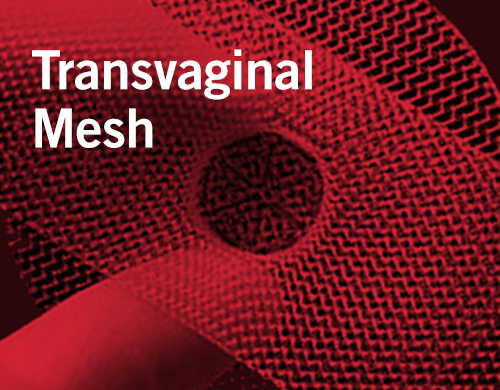 July 18, 2016
July 18, 2016 A recent study of transvaginal mesh published in the May 2016 issue of International Urogynecology Journal reports what many Waters Kraus Paul & Siegel clients have experienced firsthand. “Even after undergoing surgery,” says Rachel Gross, Texas transvaginal mesh attorney, “problems with stress urinary incontinence often continue.” For women treated with the Elevate Anterior device, the recent study found the postoperative stress urinary incontinence rate to be as high as 29.8 percent. A lower percentage of women who were implanted with the competing Perigee device also experienced incontinence — 16.7 percent. Many women implanted with other transvaginal mesh devices also suffer incontinence as well as several other debilitating medical problems.
Transvaginal Mesh Attorney Confirms Clients’ Continuing Stress Urinary Incontinence and Urinary Tract Infections Following Surgery
The whole point of undergoing transvaginal mesh surgery is to correct problems with stress urinary incontinence and pelvic organ prolapse. It is, therefore, disappointing to hear the results from this study that for three in ten women implanted with one brand of transvaginal mesh, the difficult issue of stress urinary incontinence simply returns after the surgery. Especially for women who have had children, incontinence is a real problem. At Waters Kraus Paul & Siegel, our transvaginal mesh clients tell us that even after the procedure, they cannot control their bladder when they laugh or sneeze. Many are forced to continue with prescription medications that they thought they would not need after undergoing surgery to implant transvaginal mesh. Attorney Sara Coopwood has spoken with many women who also continue to have repeated urinary tract infections (UTIs) after the surgery, just as they did before.
What’s worse are the health problems our clients had not experienced before the surgery. One of our clients in her mid-fifties began experiencing painful bleeding after her surgery to implant transvaginal mesh. On a daily basis, she experienced throbbing pain throughout the day. The pain during intercourse was so severe that it sometimes prevented her from having sex with her husband. In fact, at times her husband was also injured during intercourse. The transvaginal mesh protruding through her vaginal wall actually sliced her husband’s penis when they made love. Ultimately, she was forced to undergo additional surgery to remove the mesh. Although the surgery corrected the problem for her husband, our client continues to suffer from pain that did not exist before her initial transvaginal mesh surgery. Researchers conducting the recently published transvaginal mesh study discovered that this particular injury — called “vaginal exposure” — occurred in two patients who received the Perigee transvaginal mesh.
Contact Waters Kraus Paul & Siegel About a Transvaginal Mesh Lawsuit
Contact Waters Kraus Paul & Siegel by email or call us at 800.226.9880 to speak with a transvaginal mesh attorney at no cost today.


